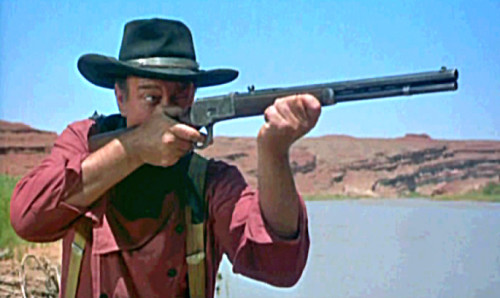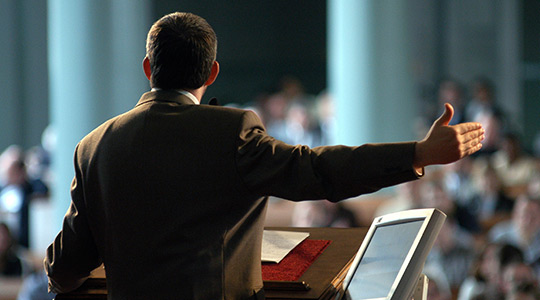Written by Colleen Clemens as part of our theme week on Masculinity.
In a much-needed update to its 1999 predecessor, Tough Guise 2: Violence, Manhood, and American Culture brings to light the horrid ways masculinity is constructed in the media. Narrator Jackson Katz uses visuals and film clips to argue that such a view of masculinity is creating a crisis in young boys as they grow up being made to feel that violence=agency and that rape is just fine because you should get what you want—and if the answer is “no,” then you just take it.
The film begins with footage from the cafeteria in Columbine High School when two students slaughtered their peers and teachers. Katz uses this scene to exemplify the crisis America is facing at the hands of young boys who are taught that in order to have agency, one must need to “man up.” And if people won’t listen to you, then you have every right to use violence to get them to listen.
[youtube_sc url=”https://www.youtube.com/embed/-4WEusN0MkQ”]
Throughout the film, Katz works to show how violence became framed as a “women’s issue,” allowing men not to care about the violence they were perpetrating. (Think self defense classes for women on campuses instead of sessions with men about consent.) This feminization of the problem allowed the media to continue running two storylines side by side–violence against women and men acting violently—as two separate stories that the media depicted as parallel lines instead of intersecting ones. Katz argues that we can no longer consider violence against women as a women’s issue but as an issue related to the violent masculinity being constructed all around us.
Katz draws attention to the media’s coverage of mass shootings in their pathetic attempts to figure out why such violence continues to occur. In an I-would-laugh-if-this-weren’t-so-sad moment in the film, Katz shows a newspaper article that tries to make connections between the shooters—in parentheses is their maleness. Katz argues that the parenthetical, the throwaway, is the answer—not the sideline. That all but one of the mass shootings in recent history have been perpetrated by a man or men is the obvious answer to Katz. The film then uses a variety of films
—from Fight Club to Kung Fu Panda—
to illustrate his point that violent masculinity is reified from the earliest of years in a young boy’s life, and that to undo such a terrible programming feels impossible. Yet our culture relies on us undoing it. One of the many examples Katz investigates is the Western, the quintessence of manhood construction in early cinema. John Wayne, Katz argues, is the “real man,” the one who solves problems with a gun. He is the essence of American “toughness, manhood, and violence.”

Katz does little in this film to educate the viewer on what to do next. The film is a long argument defining the problem without offering much of a solution. While Katz gives talks on campuses around the country to discuss what to do, the film leaves the viewer feeling more bereft and shocked than empowered. When I co-hosted a viewing of it at my child’s school (and how cool is a school that wants to investigate issues of gender!), I sent parents to Katz’s TED talk to give them the next step.
The parents wanted a prescription, an antidote to the awfulness they had just witnessed—and I can’t blame them, even if a film shouldn’t have to do such work. I suggested starting with undoing the “boys will be boys” mentality on the playground as a great place to start…
…because boys can be so much more if we open the construct and give them room to feel without embarrassment, to cry without reproach, to love without fear. Boys who feel don’t need to “grow a pair.” Boys who cry aren’t “pussies.” Boys who love don’t need to “man up.” We need more representations of boys and men that undo the terrifying construct Katz unpacks in Tough Guise 2 if anything is going to change our culture of violence.
[youtube_sc url=”https://www.youtube.com/embed/KTvSfeCRxe8″]







